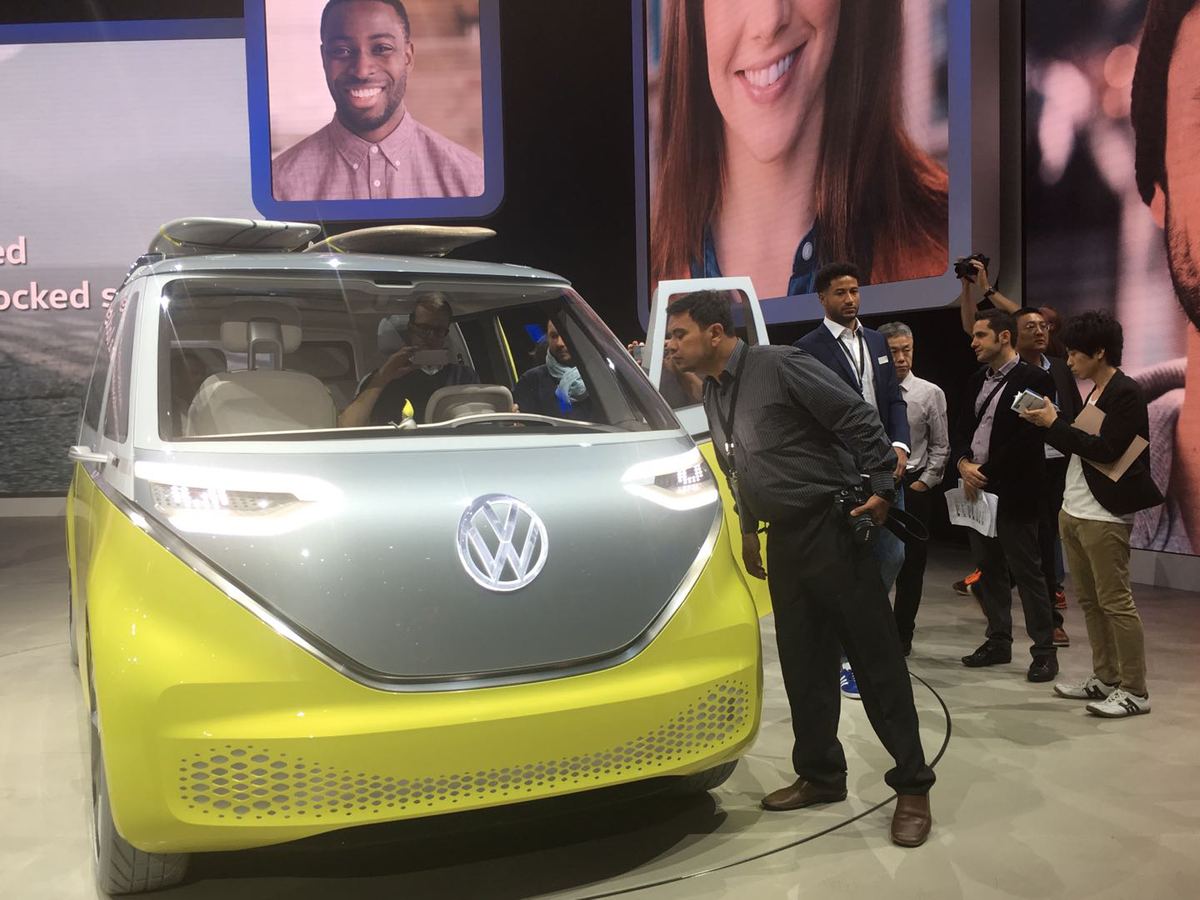Diesel cars to die out in Tesla-like future, EU regulator says
China Daily | Updated: 2018-05-28 10:53

Consumers may do as much as regulators to propel the car sector into the electricity-powered age foreseen by Tesla Inc, according to the European Union's industrial-policy chief.
European Commissioner Elzbieta Bienkowska said the EU has had a "breakthrough moment" since Germany-based Volkswagen AG admitted in 2015 that it fitted diesel engines with software to cheat checks in the United States on smog-causing discharges of nitrogen oxides.
This deeply affected "the emotions in society toward emissions and cleaner cars," she said.
"Diesel cars are finished," Bienkowska said in a May 24 interview. "I think in several years they will completely disappear. This is the technology of the past."
The auto-emissions scandal may help the EU to gear up for a technological revolution in road transport.
Europe is seeking to retain leadership in the worldwide market for passenger cars in the face of competition from the US, where Tesla is based, and China, which accounts for about half of electric-vehicle sales.
Tighter rules
VW's cheating, which the US uncovered and led Germany to order an EU-wide recall of 8.5 million Volkswagen vehicles, pushed the world's No 1 carmaker into a crisis and left policy makers in Europe scrambling to patch up regulatory holes that threatened a "clean-diesel" strategy dating to the 1990s.
Bienkowska's services were subsequently notified of possible engine-management irregularities in more diesel cars, including some made by Fiat Chrysler Automobiles NV.
The issue has been politically thorny in Europe because around half of the cars in the region are powered by diesel - which causes more urban pollution than gasoline while having less global-warming impact - and because many member states have struggled to meet clean-air goals meant to reduce human sicknesses and premature deaths.
"People have realized that we will never have completely clean - without NOx - diesel cars," Bienkowska said.
Last week, EU governments backed a revamp of the rules for authorizing car models in the 28-nation bloc. The European Commission, the EU's regulatory arm, won the power to fine automakers up to 30,000 euros ($35,157) per faulty car and order recalls as part of the more centralized market oversight, becoming more like the US Environmental Protection Agency.
Carmaker 'arrogance'
Bienkowska said "arrogance" by carmakers, coupled with their traditionally close ties to national governments, meant the draft law was initially greeted as if the industry wrongdoing had been insignificant. Gradually, she said, attitudes changed.
"I am really a little bit less frustrated than I was a year ago," said Bienkowska. "During this denial phase, it was awful." Adding to the optimism is an initiative by the commission and industry to spur the development in Europe of batteries for electric cars, including through financing.
European companies seeking to get a foothold in the market include BMW AG, Daimler AG, BASF SE and Vattenfall AB.
"We want to have the first batteries produced in Europe, but also the whole value chain," Bienkowska said. "It's the kind of a project that a single member state cannot afford." Individual European companies are doing their part too.
VW, which aims to sell as many as 3 million all-electric cars annually by 2025, has awarded 40 billion euros in contracts to battery producers.
The deals take the company to within striking distance of its target to lock down 50 billion euros in supplies.
European electric-vehicle sales, now about 1.5 percent of all new registrations on the continent, will rise to about 5 percent in 2021 and take off from 2025, according to Bloomberg New Energy Finance.
EU policy to fight climate change may also play a role, albeit in a more nuanced way than China's approach of imposing quotas.
A draft European law to tighten caps on car discharges of carbon dioxide offers incentives for automakers to shift to electric vehicles.
Bloomberg
























